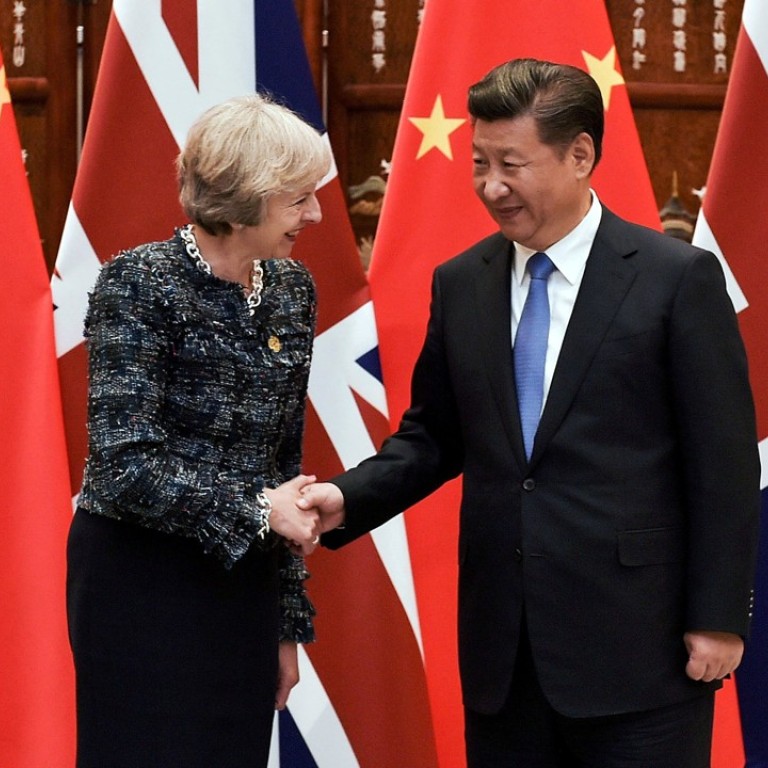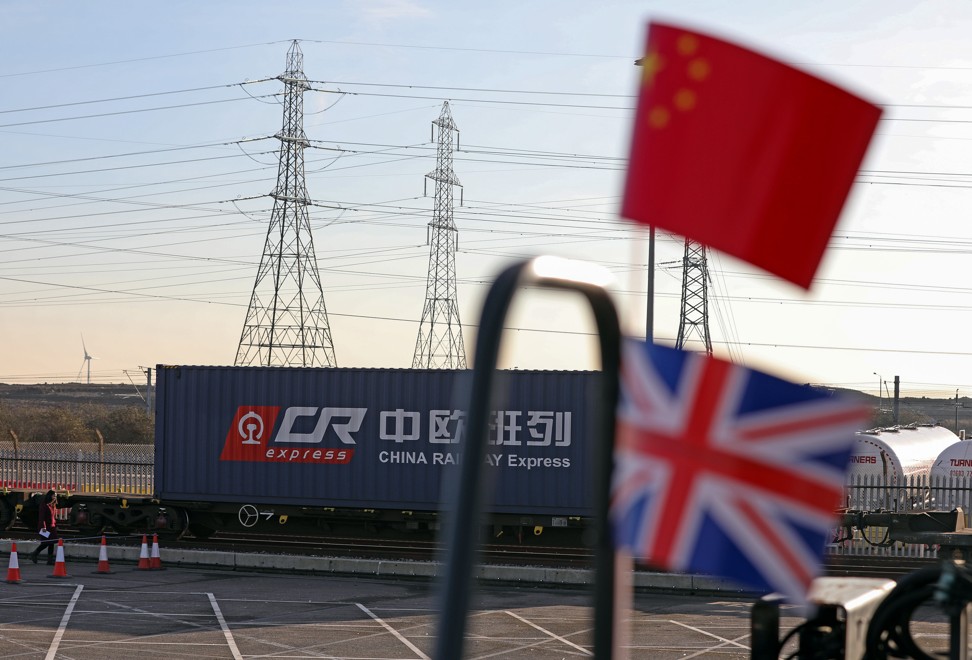
British Prime Minister Theresa May has ambitious partnership plans for China, diplomat says
Leaving the European Union will allow London to make its own decisions on trade and investment deals with Beijing, ambassador says ahead of leader’s trip
Britain’s Prime Minister Theresa May will look to build a “more ambitious” trading relationship with China after its departure from the European Union, the British ambassador to China said on Monday ahead of the leader’s three-day visit.
May will start her long-delayed trip on Wednesday in the central city of Wuhan, before meeting China’s top leaders in Beijing and travelling with a business delegation to Shanghai, said Barbara Woodward, Britain’s top envoy in the country.
“One of the things the prime minister will be focusing on this visit is looking at the scope to work with China, as China opens up its markets, to move towards a more ambitious trading relationship with China,” Woodward told reporters.
With Britain expected to leave the EU in March next year, May’s cabinet has expressed its interest in exploring free-trade agreements with China, although negotiations cannot begin until the split has been finalised.
“Obviously Brexit means that the UK will be free to make its own decisions about trade and investment partnerships,” Woodward said.
In recent years, the European Union, and especially core countries like Germany and France, has raised serious concerns over Beijing’s trading policies and lack of openness to its markets. The EU has refused to recognise China as a market economy, talks on a China-EU investment agreement have stumbled, and negotiations on a free-trade deal that requires the support of all member states are unlikely to start any time soon.
Despite the collective concerns, Woodward said that within the EU Britain had traditionally encouraged engagement with China on investment and trade.
“So I think we may be able to move a bit faster on our own,” she said.
During Chinese President Xi Jinping’s state visit to Britain in 2015, he said that bilateral ties between China and Britain had entered a “golden era”.
Woodward said that since 2010, Britain’s exports to China had risen by 60 per cent, while two-way trade in 2017 grew 30 per cent year on year. Also, more than 660,000 Chinese visited the UK last year, while collaboration had broadened into political and security areas.
“I would say our commitment to the golden era of our relationship with China has remained constant, steadfast and steady,” she said.
She said also that Britain was “a natural partner” for Beijing’s signature “Belt and Road Initiative”, with its ability to provide support not only in terms of the physical development of infrastructure projects, but also from a financial perspective.
Experts from the City of London were keen to share their knowledge of designing complex funding mechanisms, while Britain’s involvement, as had been shown with its support for the Beijing-led Asian Infrastructure Investment Bank, would help to ensure standards were clear and fair, she said.
May’s visit to China will be her second as prime minister, with the first being in 2016, when she attended the G20 summit in Hangzhou. She also met Xi last year at the G20 summit in Hamburg.


